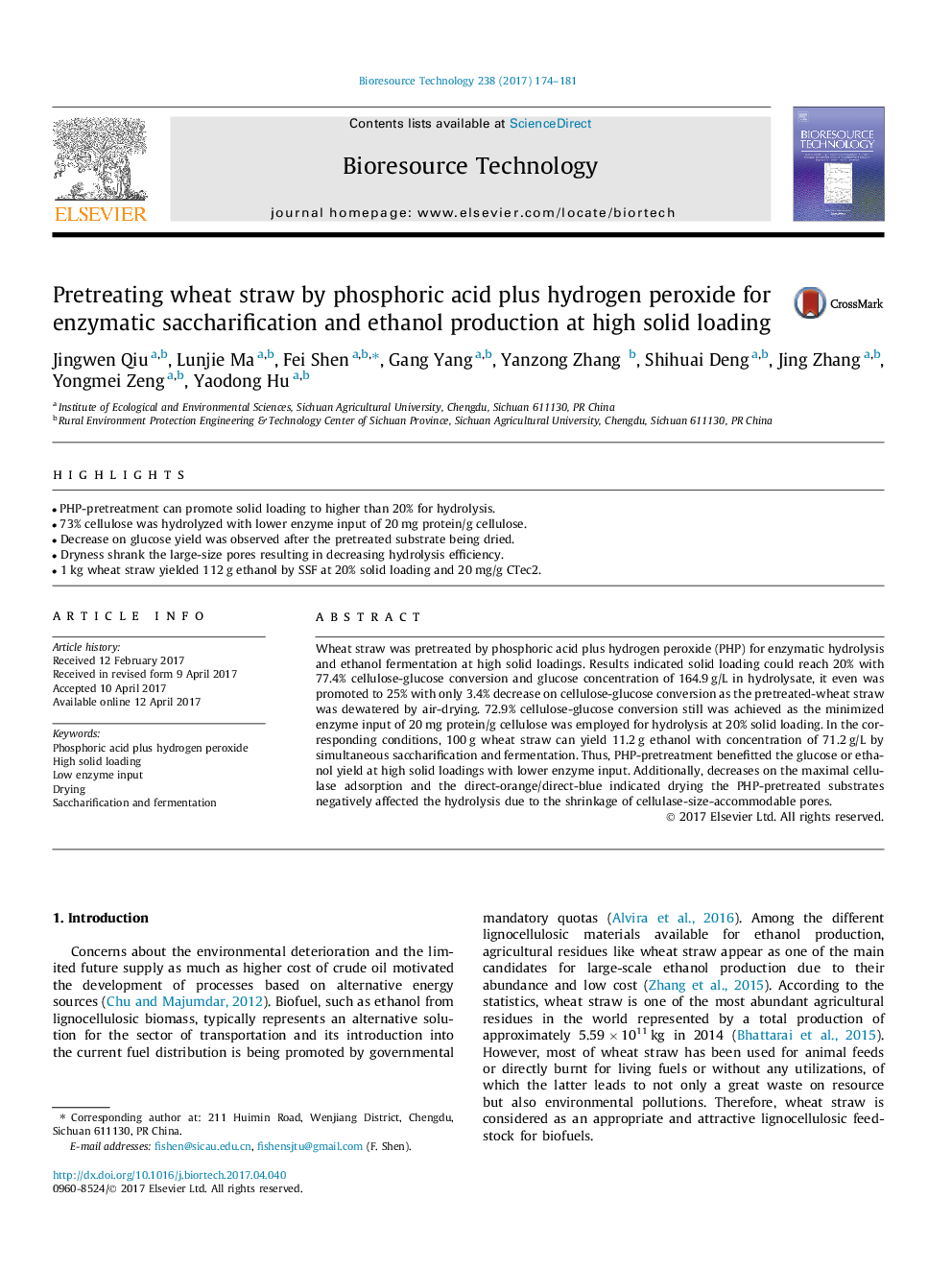| Article ID | Journal | Published Year | Pages | File Type |
|---|---|---|---|---|
| 4997276 | Bioresource Technology | 2017 | 8 Pages |
â¢PHP-pretreatment can promote solid loading to higher than 20% for hydrolysis.â¢73% cellulose was hydrolyzed with lower enzyme input of 20 mg protein/g cellulose.â¢Decrease on glucose yield was observed after the pretreated substrate being dried.â¢Dryness shrank the large-size pores resulting in decreasing hydrolysis efficiency.â¢1 kg wheat straw yielded 112 g ethanol by SSF at 20% solid loading and 20 mg/g CTec2.
Wheat straw was pretreated by phosphoric acid plus hydrogen peroxide (PHP) for enzymatic hydrolysis and ethanol fermentation at high solid loadings. Results indicated solid loading could reach 20% with 77.4% cellulose-glucose conversion and glucose concentration of 164.9Â g/L in hydrolysate, it even was promoted to 25% with only 3.4% decrease on cellulose-glucose conversion as the pretreated-wheat straw was dewatered by air-drying. 72.9% cellulose-glucose conversion still was achieved as the minimized enzyme input of 20Â mg protein/g cellulose was employed for hydrolysis at 20% solid loading. In the corresponding conditions, 100Â g wheat straw can yield 11.2Â g ethanol with concentration of 71.2Â g/L by simultaneous saccharification and fermentation. Thus, PHP-pretreatment benefitted the glucose or ethanol yield at high solid loadings with lower enzyme input. Additionally, decreases on the maximal cellulase adsorption and the direct-orange/direct-blue indicated drying the PHP-pretreated substrates negatively affected the hydrolysis due to the shrinkage of cellulase-size-accommodable pores.
